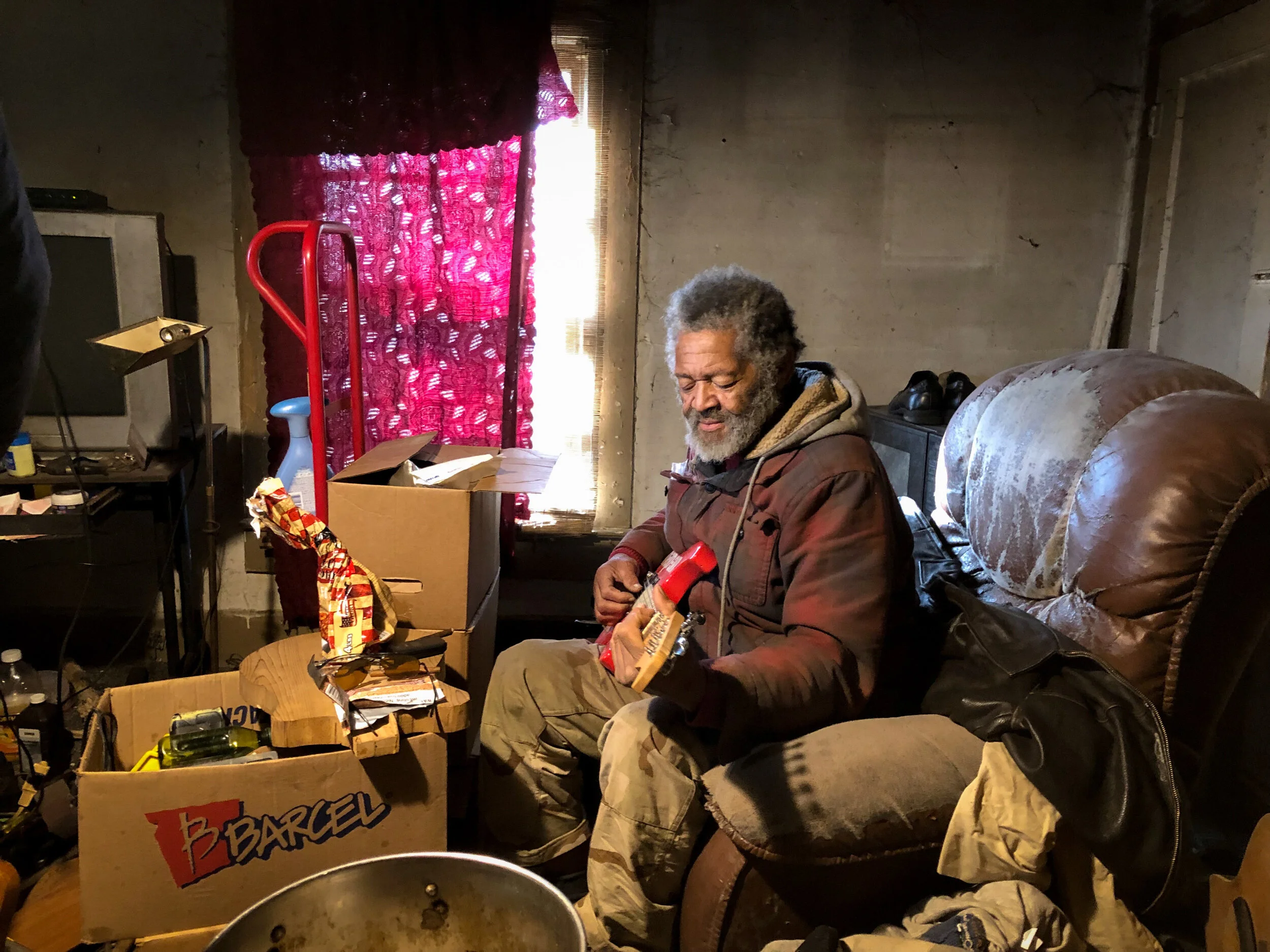Film by Cornelius Lewis & Music Maker Relief Foundation | Photos by Timothy Duffy | Words by Josina Guess
Who they hung or how many they hung, I don’t know. A whole lot of that stuff happened around here, God almighty knows.
— Freeman Vines
We are having our senses messed with. Our senses were messed with, our emotions were messed with throughout our entire life.
— Lonnie Holley
August 30, 2020
You will not see the body.
Hanging Tree Guitars is the kind of book title that might make you worry the pages would hold those kinds of images you can’t unsee.
While Freeman Vines made hand-carved guitars and sculptures in his front porch ramshackle studio in rural North Carolina, Tim Duffy from the Music Maker Relief Foundation set up his portable wet-plate studio and made a series of photographs. The collodion images are reminiscent of the time of those postcards, you know what I’m talking about, the ones that make you shake your head and wonder what the hell kind of a people make and distribute postcards from lynchings? Or those tin type photos might draw you even further back to the time of the Civil War, when people fought and died either to defend or resist the enslavement of African people.
Every image in this book is new, taken between 2015 and 2018, but looking at them you’ll get that feeling like you are looking back in time or into a mirror. What year is this anyway?
Hanging Tree Guitars is a hard book to categorize — is it art, spirituality, history, music, poetry, prophecy, folklore? It’s a book that will slow you down. (I read it for the first time in the middle of the night in August — one of those sleepless nights of summer 2020. I read it all the way through cover to cover in those bewitching pre-dawn hours.) The book, like our country, reads like a dream, or a waking nightmare.
In the relentless pursuit of a sound, Freeman Vines taught himself to make guitars. He had been making guitars for decades when a neighbor approached him and offered him free wood from an old black walnut tree, a tree that according to local lore, was known as the hanging tree. Vines held those planks in his hands and worked, and worked, and worked them until the long silent wood took shape and had a voice.
Oliver Moore was a real man, killed on a tree in late August 1930, just across the Edgecombe County line in Wilson County, North Carolina. There were others, their names not recorded. The man died on it, Vines observed, but the tree kept on living.
Vines did what only a true artist can do and found out exactly what the wood was waiting to reveal.
Over the course of hours of visits with Vines, Duffy recorded their conversations about everything from process, to prison, to the unchanging nature of racism. Zoe Van Buren assembled the conversations into lyrical prose along with just enough writing to hold the threads of conversation together.
This short film, much like the book, takes you down a gravel road where the bridges between time and place seem to shorten. Are we talking about the past or are we talking about now? “To meet Freeman Vines is to meet America itself.” Welcome. Look close. Listen.









